The Iowa Water Center (IWC), the Water Resources Research Institute for the State of Iowa as authorized by the Water Resources Research Act of 1964, seeks proposals for the annual 104(b) competitive grants program.
This program consists of two opportunities for 2025:
- a targeted seed grant research competition, and
- a graduate student supplemental research competition
Funding for selected projects will be available beginning September 1, 2025 (funding availability dependent upon congressional budget action) for a one-year period. Projects should address local or regional water research needs.
IWC is administered through a partnership between Iowa State University and the U.S. Geological Survey. As such, project activities and expenditures will be subject to federal requirements under Uniform Guidance (UG). To read more about UG, visit: ISU Costing Policy Guide for Principal Investigators
Applicants are required to submit a letter of intent due January 24, 2025, with full proposals due March 10, 2025.
Questions can be directed toward the Program Contact: Zita Quade
(515) 210-5472
Targeted Seed Grant Research Competition
This program is intended to address the most pressing water research needs in the state of Iowa as determined by the agencies and organizations that comprise the IWC Advisory Board. For 2025, the board has identified the following area in which we are soliciting proposals for up to $40,000 per project:
Proposals must address one of three priority areas:
- Water related hazards and society – exploration of the intersections of land/water use, and water hazards, climate change, or drought response. Research emphasizing social and environmental justice regarding these topics is preferred.
- Exploration and advancement of our understanding of harmful algae blooms (HABs). Proposals are sought that focus on innovations in monitoring the occurrence of HABs and algal toxins, research on factors that result in algal toxin production, and improvements in near-real time modeling and forecasting of toxin-producing blooms.
- Emerging contaminants: research on the fate, persistence, transport, and impacts of contaminants on water resources and ecosystem dynamics. Research can include social and/or economic assessment of the spread, detection, impacts, solutions, and management. Contaminants include per-and polyfluoroalkyl (PFAS) substances, E. coli, and other physical, chemical, and biological contaminants.
Eligible applicants include faculty, staff, and graduate students at Iowa’s accredited colleges and universities. Priority will be given to proposals that engage early career faculty and/or graduate and undergraduate students.
IWC anticipates funding for one targeted seed grant in 2025. If your project is funded, we would accept an application for an additional year of funding if sufficient progress is achieved in year one. Due to federal funding cycle constraints, the estimated date of funds expended must be by August 30, 2026. The deadline is subject to change as the funding availability from USGS has not been released.
Proposals must be submitted by email to iowawatercenter@iastate.edu with the subject line: 2025 IWC Seed Research Competition – [Your Last Name]
Graduate Student Supplemental Research Competition
This program is designed to allow students to complete additional research objectives or products beyond the scope of a current water-related funded project. Funding of up to $5,000 for one year is available to graduate students nearing completion of their program of study or those with well-established, active research projects. (The readiness of the student to embark on additional research is subjective, and students should consult with their major professor before deciding to apply.) The proposed budget must include funds for publication costs. Students will be required to submit their research to peer-reviewed publications.
IWC anticipates funding for approximately two graduate student supplemental grants in 2025. Due to federal funding cycle, the estimated date of funds expended must be by August 30, 2026. The deadline is subject to change as the funding availability from USGS has not been released.
Proposals must be submitted by email to iowawatercenter@iastate.edu with the subject line: 2025 IWC Graduate Research Competition – [Your Last Name]
Funding
Funds from this program can be requested for student support, hourly wages, supplies, local travel, analytical costs, and publication costs. Requesting federal funds for travel to conferences to present research is not allowed. Additional cost categories that are imperative for the project are allowed. Applicants are encouraged to contact IWC with questions prior to submitting the proposal.
Investigators will be required to provide documentation of committed matching funds. The U.S. Geological Survey requires a 1:1 nonfederal to federal funds match. The sponsor will not pay indirect costs. Researchers are encouraged to use forfeited and waived indirect costs as a portion of the required match. See appendix A for a budget example.
Intent to Apply
Applicants must notify IWC via email (iowawatercenter@iastate.edu) of proposal submission intention by January 24, 2025, at 5 pm. The notice of intent should include a working title of the project, as well items 1-2, 4-6 from the proposal guidelines (see page 3 and 4 of this RFP), and six names, including contact information, of potential reviewers. Reviewers should be qualified to evaluate the scientific merit of the study design without conflict of interest to the applicant. Reviewers can be either within or outside the state of the applicant’s home institution.
Conflict of Interest for Reviewers
The following guidelines and situations are determined to be conflicts of interest, and therefore, individuals who fall into these categories should not be suggested as reviewers for proposals:
- Individuals who serve on thesis, dissertation, or advising committee to the PI or Co-PI(s)
- Individuals who have served as a co-author on publications with the PI or Co-PI(s) at least once in the past three years
- Individuals who are colleagues with the PI or Co-PI(s) within the same department or similar unit for the past three years
- Individuals who supervise or who have supervised the PI or Co-PI(s)
- Individuals who have a direct or indirect financial interest in the proposal
- Individuals who have a personal relationship with the PI or Co-PI(s)
Proposal Guidelines
Proposals must include the information listed below in the order presented and identified by the corresponding number. The body of the proposal (items 10 through 16) should not exceed six (6) single-spaced pages in 12-point, Times New Roman font.
- Title: Concise but descriptive.
- Principal Investigator(s): Provide name, academic rank, university, email address, and phone number of the principal investigators. Graduate students should list their advisor as a co-investigator.
- Project Title
- Project Type: State “Research.”
- Congressional District: of the university where the work is to be conducted.
- WRRI Science Priorities: Choose the one category that most closely applies from the following: Water Scarcity and Availability, Water Hazards and Climate Variability, Water Quality, Water Policy, Planning, and Socioeconomics, Watershed and Ecosystem Function, Water Technology and Innovation, or Workforce Development and Water Literacy.
- Primary Cross-Discipline Science Topic: Choose one that so closely applies from the following. Climate, Energy, HABs, Indian Water Rights, Natural Hazards, Oceans/Coastal/Great Lakes, STEM, Water Challenges, Other
- Keywords: Choose a maximum of three focus categories from the provided list (Appendix A), with the most preferred focus category first
- Training potential: Estimate the number of graduate and undergraduate students, by degree level, who are expected to receive training in the project.
- Start Date: Enter the actual beginning date for the project.
- End Date: Enter the estimated end date for the project.
- Abstract: Provide a brief (one-page) description of the problem, methods, and objectives.
- Plain-language summary. Provide a brief (150 word) description of the study that could be understandable by the public.
- Statement of regional or state water problem: Include an explanation of the need for the project, who wants it, and why.
- Statement of results or benefits: Specify the type of information that is to be gained and how it will be used.
- Nature, scope, and objectives of the project, including a timeline of activities
- Methods, procedures, and facilities: Provide enough information to permit evaluation of the technical adequacy of the approach to satisfy the objectives.
- Related research: Show by literature and communication citations the similarities and differences of the proposed project to completed or on-going work on the same topic.
- Budget breakdown: EXCEL fillable form that may be downloaded from https://iastate.box.com/s/x42juxnv1aj94m7l3jchywwi1t79xsna
- Budget justification: fillable form that may be downloaded from https://iastate.box.com/s/s9sqrm7tjdcf2amuagc4i9vyb6py5n98
- Investigator’s qualifications: Include resume(s) of the principal investigator(s). No resume shall exceed two pages or list more than 15 pertinent publications.
- Cost Share Documentation. Cost share letters to support the budget and budget justification. If you are a PI at a non-Iowa State University institution, a transmittal letter from your Department of Sponsored Programs is required.
- Data Management Plan (DMP): This brief supplementary document (3-5 sentences) should describe how the proposal will conform to USGS policy on the dissemination and sharing of research results and associated data. A valid DMP may include only the statement that no detailed plan is needed (e.g., “No data are expected to be produced from this project”), as long as the statement is accompanied by a clear justification. This supplementary document may include:
- the types of data, samples, physical collections, software, curriculum materials, and other materials to be produced during the project
- the standards to be used for data and metadata format and content (where existing standards are absent or deemed inadequate, this should be documented along with any proposed solutions or remedies)
- policies for access and sharing including provisions for appropriate protection of privacy, confidentiality, security, intellectual property, or other rights or requirements
- provisions for re-use, re-distribution, and the production of derivatives
- plans for archiving data, samples, and other research products, and for preservation of free public access to them.
Deadline: Please email the proposal as a Word file with accompanying excel spreadsheets to iowawatercenter@iastate.edu by close of business day on March 10, 2025.
Iowa State University applicants: this opportunity is considered internal, and you do not need to submit the proposal in Streamlyne before applying.
Evaluation Criteria for Funding
Proposals will be reviewed for scientific merit by scientists not involved with this RFP. This information will be used by IWC staff and the IWC Advisory Board to rank proposals for quality and relevance.
Review criteria include:
| 1. Scientific and technical merit (20%) |
| 2. Applicability to the research, education, and training needs identified by the advisory council (20%) |
| 3. Competence of the PI for carrying out the proposed study efficiently and effectively (15%) |
| 4. Appropriateness of submitted budget to the proposed study (15%) |
| 5. Student educational opportunities arising from the proposed study (10%) |
| 6. Potential for technology transfer via workshops, tech reports, journal articles, theses, etc. (10%) |
| 7. Feasibility of completing the work in the proposed timeframe (5%) |
| 8. Quality of proposal: grammar, structure, readability (5%) |
Awarded Proposals Expectations
Upon notification of award, IWC staff will work with the principal investigator (PI) to make budget and narrative adjustments as recommended by the advisory board and in accordance with USGS requirements. IWC submits projects for federal approval in May as part of its “base grant” package. Notice of funding is anticipated in August. If this timeline is delayed for any reason (most commonly due to congressional budget setting), IWC staff will communicate with the PI. IWC will make every effort to accommodate projects so that they are completed in the time allotted.
Once USGS releases FY25 funds to IWC, work can begin on the project. IWC staff will work with PIs and their home department/institution to set up the project account. IWC will periodically monitor funding on the project to ensure funds are spent in a timely manner, but budget management is ultimately up to the PI. It is the responsibility of the PI to oversee appropriateness and allowability of project expenditures.
PIs will have the opportunity throughout the project period to be featured in photos, videos, and written content produced by IWC to promote their research.
PIs are required to submit a final report at the completion of the project. This brief report should include significant findings or accomplishments, awards, publications, and presentations, and the number of students involved in the project. A report template will be sent to you with deadline information. Additionally, PIs may be invited to prepare a final technical report, published by IWC.
Finally, awardees are expected to give a poster or presentation at the Iowa Water Conference or equivalent local event (e.g., Prairie Lakes Conference, Iowa Groundwater Association meeting) at or near the conclusion of the project.
Budget Justification
- Salaries and Wages: Provide estimated hours and the rate of compensation proposed for each individual (X hours @ $X). Tuition remission and other forms of compensation paid as or in lieu of wages to students performing necessary work are allowable, provided that the tuition or other payments are reasonable compensation for the work performed and are conditioned explicitly upon the performance of necessary work.
- Fringe Benefits: Provide the overall fringe benefit rate applicable to each category of employee proposed in the project.
- Supplies: Indicate separately the amounts proposed for office, laboratory, computing, and field supplies. Be specific.
- Equipment: Identify non-expendable personal property having a useful life of more than one year and an acquisition cost of more than $5,000 per unit. If fabrication of equipment is proposed, list parts and materials required for each and show costs separately from the other items.
- Services or Consultants: Identify the specific tasks for which these services, consultants, or subcontracts would be used. Estimate amount of time required and the hourly or daily rate. Provide a detailed list (i.e., sample analysis: 1000 samples @ $8/sample.)
- Travel: Provide purpose and estimated costs for all travel. Travel opportunities must be specific (i.e., travel to XYZ conference in XYZ location on XYZ dates) and costs must be itemized (e.g., airfare, lodging, parking, per diem). No international travel is permitted.
- Other Direct Costs: Itemize costs not included elsewhere, including publication costs. Costs for services and consultants should be included and justified under “Services or Consultants” above.
- Indirect Costs: No indirect costs are associated with these grants. Please use forfeited (Federal and Non-Federal) indirect costs as part of the required match.
Proposal Checklist
- Read RFP in totality
- Submit intent to apply via email to iowawatercenter@iastate.edu by January 18, 2025, by 5 p.m. (including a list of six potential reviewers)
- Complete proposal guidelines
- Complete budget with a 1:1 nonfederal to federal funds match
- Submit proposal as a Word document with accompanying excel spreadsheets by March 10, 2025, 5 p.m. to iowawatercenter@iastate.edu
- Proposals must be submitted by email to iowawatercenter@iastate.edu with the subject line:
- 2025 IWC Seed Research Competition – [Your Last Name]; or
- 2025 IWC Graduate Research Competition – [Your Last Name]
- Proposals must be submitted by email to iowawatercenter@iastate.edu with the subject line:
APPENDIX A
WRRI Science Priority that best aligns with your project
Water Scarcity and Availability
Water-Related Hazards and Climate Variability
Water Quality
Water Policy, Planning, and Socioeconomics
Water Technology and Innovation
Workforce Development and Water Literacy
Watershed and Ecosystem Function
Primary Cross-Discipline Science Topic
Climate
Energy
HABs
Indian Water Rights
Natural Hazards
Oceans/Coastal/Great Lakes
STEM
Water Challenges
Other
Focus Categories (Keywords)
| Acid Deposition ACD
Agriculture AG Climatological Processes CP Conservation COV Drought DROU Ecology ECL Economics ECON Education EDU Floods FL Geomorphological Processes GEOMOR Geochemical Processes GEOCHE Groundwater GW Hydrogeochemistry HYDGEO Hydrology HYDROL Invasive Species INV Irrigation IG Law, Institutions, & Policy LIP Management & Planning M&P Methods MET Models MOD Nitrate Contamination NC
|
Non-Point Pollution NPP
Nutrients NU Radioactive Substances RAD Recreation REC Sediments SED Solute Transport ST Surface Water SW Toxic Substances TS Treatment TRT Wastewater WW Water Quality WQL Water Quantity WQN Water Supply WS Water Use WU Wetlands WL |
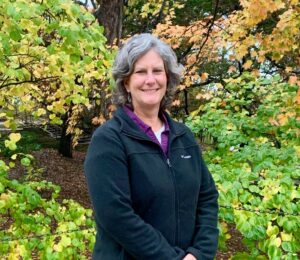 Laura Frescoln joined the Iowa Water Center in October as a grant specialist. Laura has 4 years of grant experience in the non-profit sector and is excited to apply her knowledge and skills at the Iowa Water Center.
Laura Frescoln joined the Iowa Water Center in October as a grant specialist. Laura has 4 years of grant experience in the non-profit sector and is excited to apply her knowledge and skills at the Iowa Water Center.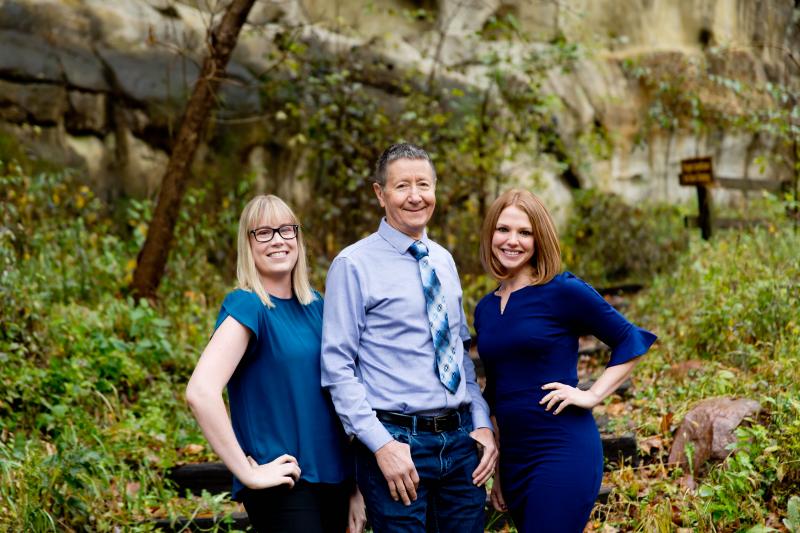

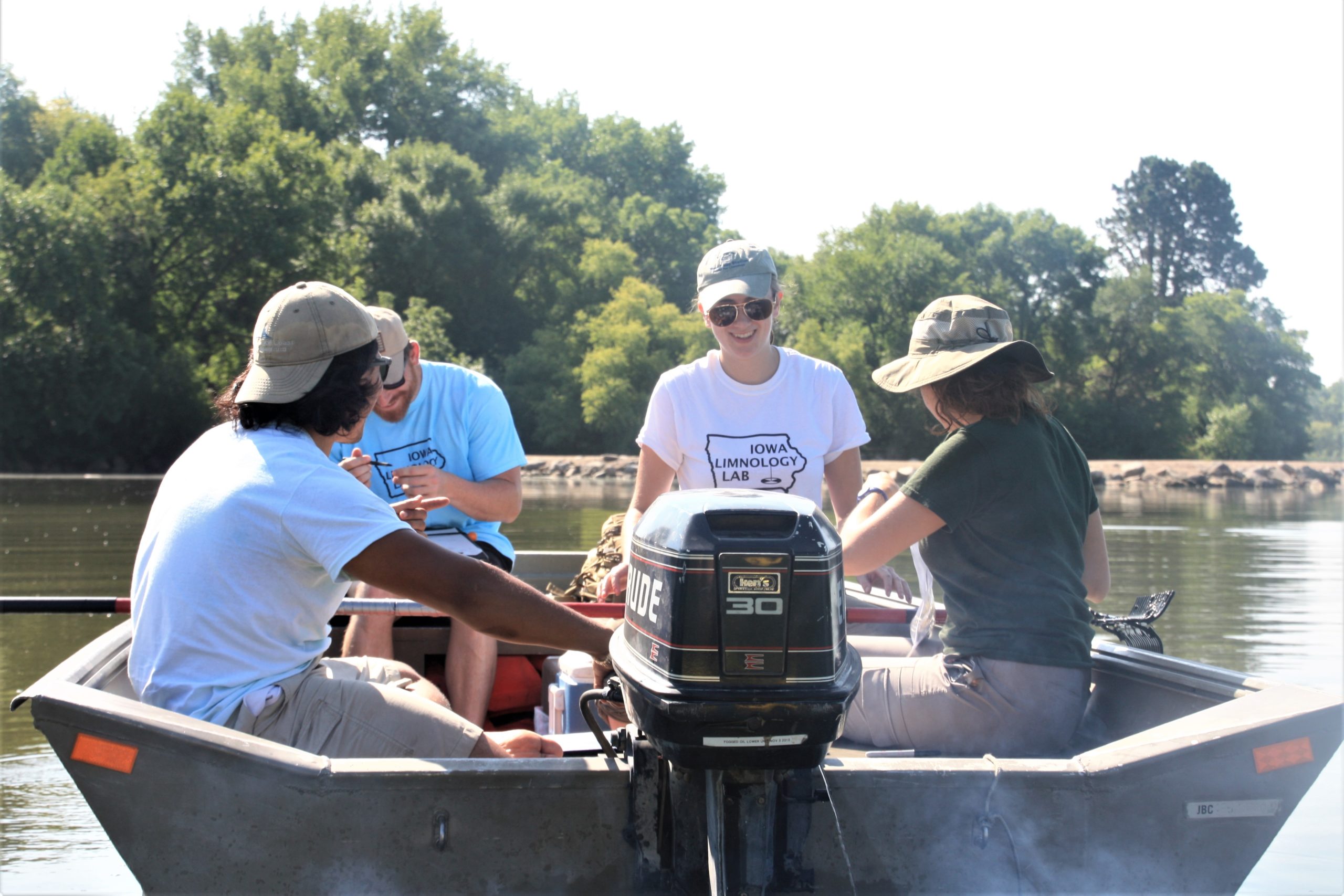
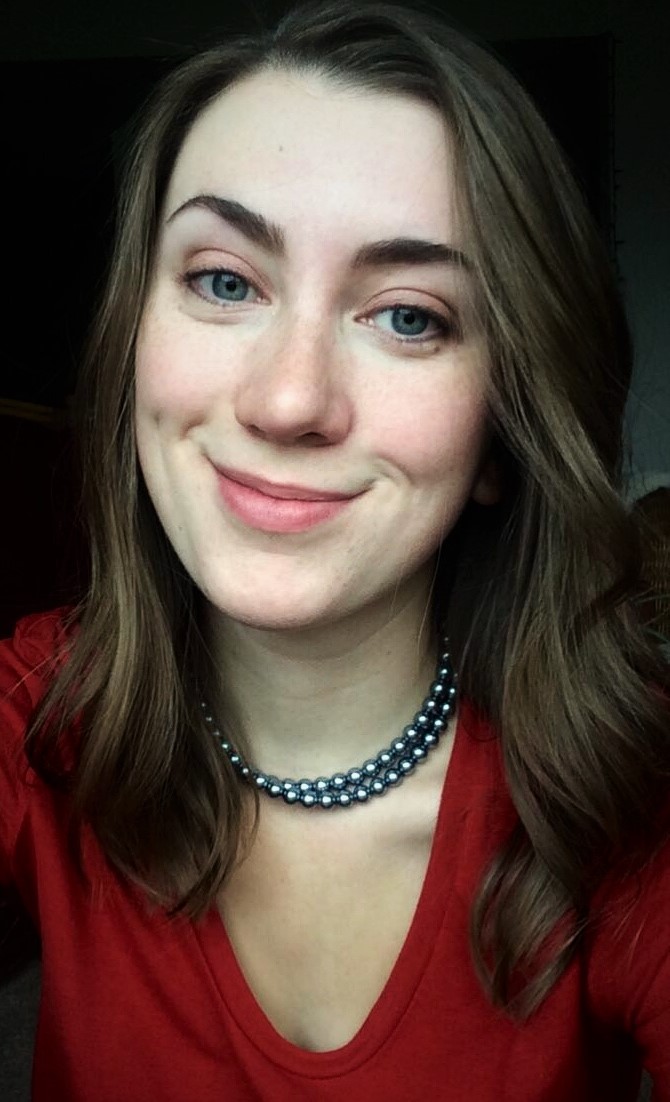
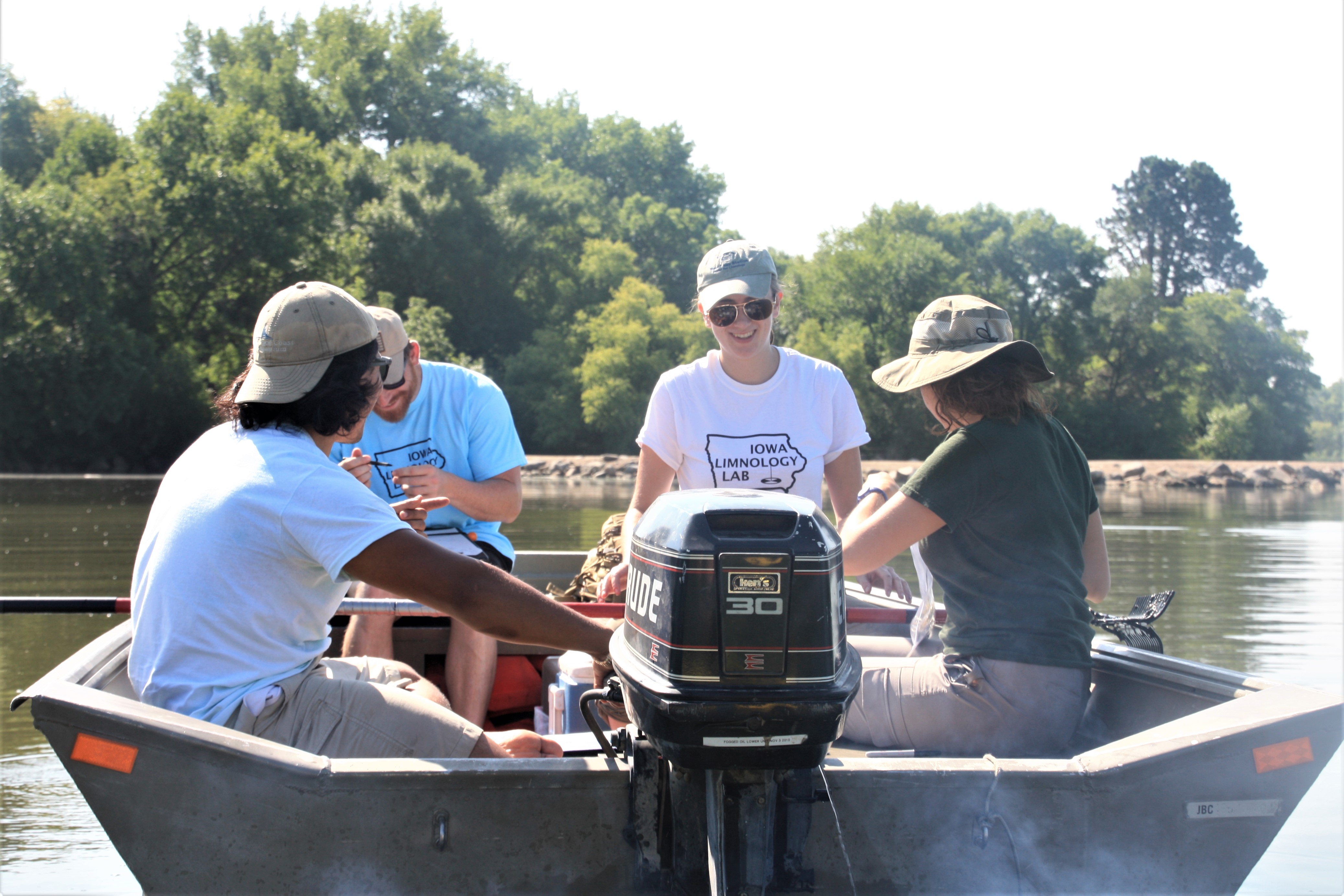
 Sarah Feehan is the communications specialist for the Iowa Water Center. She holds a BS in Journalism and Mass Communication with a minor in Political Science from Iowa State University. In fall of 2019, Feehan will begin acquiring her JD from Drake Law School.
Sarah Feehan is the communications specialist for the Iowa Water Center. She holds a BS in Journalism and Mass Communication with a minor in Political Science from Iowa State University. In fall of 2019, Feehan will begin acquiring her JD from Drake Law School.